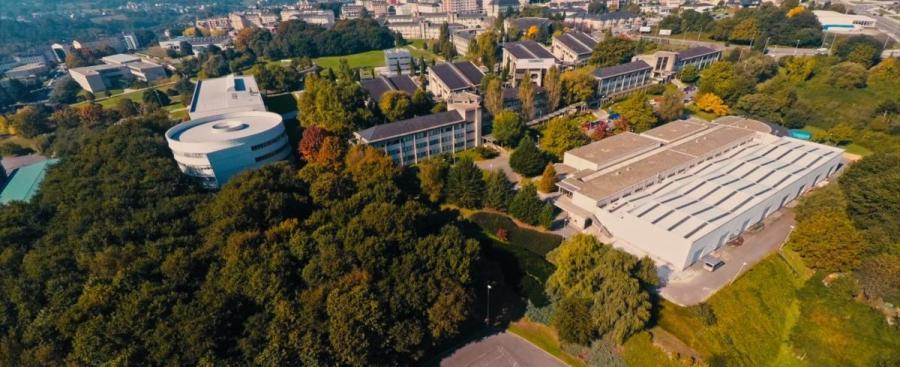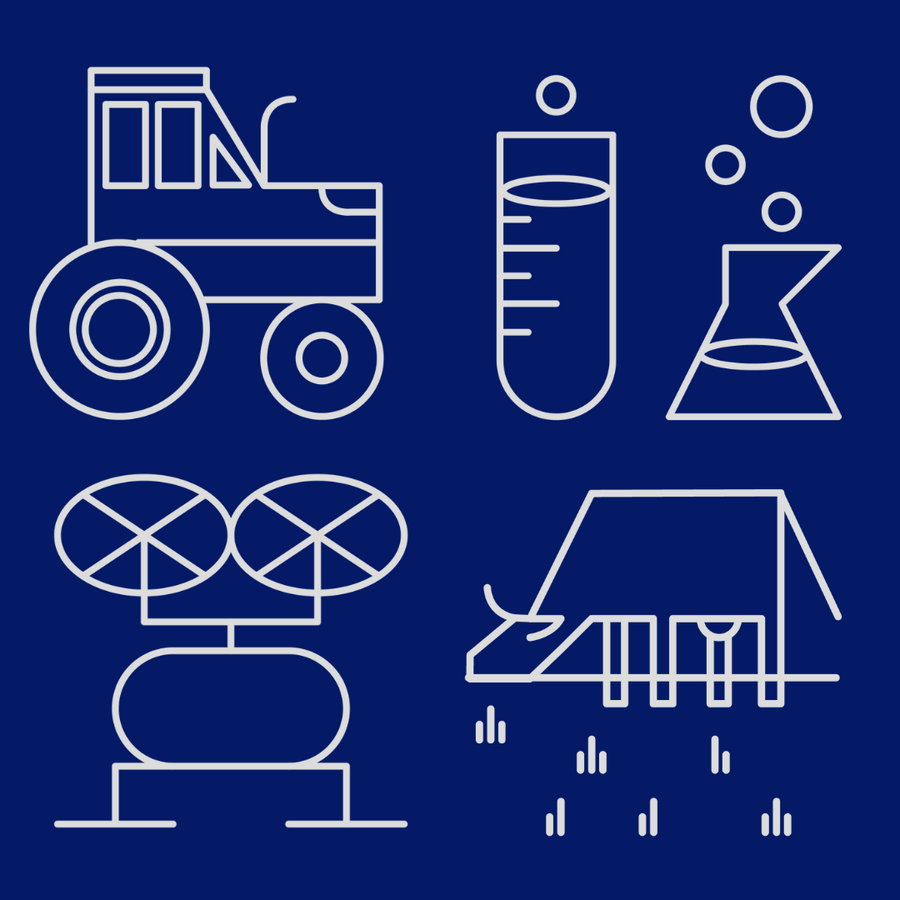
The teaching model of the degrees taught on campus is basically practical and fully coordinated with their respective sectors of application. Therefore, it privileges the acquisition of knowledge and skills that promote employability. In this sense, great importance is given to formal and informal activities that the Campus intends to provide knowledge and values. Myriads of agreements promote external internships. The official degree offer is complemented by the offer of master's degrees, some of which are taught in conjunction with other universities, such as a Landscape degree (taught jointly with the University of Coruña) or the master's degrees in Genomics and Genetics, as well as the Unmanned Aerial Systems Engineering (both taught jointly with the University of Vigo). Moreover, the teaching offer is complemented by specialization and continuous training courses.
The research in the agri-food field that takes place in Campus Terra Lugo has its administrative headquarters in the Cactus building and is carried out by a group of researchers and scholars who make up various research groups belonging to the different faculties and schools. A large part of these researchers make up the Strategic Group BioReDes Campus Terra, which aspires to become the backbone of the R&D strategy for the primary sector of Galicia. Campus Terra Lugo has four technological platforms: Dairy Products and Food Technologies Classroom, Structural Wood Engineering, Functional Genomics and Sequencing, and Territorial Information System. Furthermore, in December 2020, with the support of the Province Government, a new Dairy Farm was inaugurated, encompassing teaching, research and development activities.
The transfer of knowledge and technology, the promotion of innovation (business and social) and activities related to university social responsibility are also fundamental axes of Campus Terra Lugo. Along these lines, the campus promotes different entrepreneurship programs each year. At the same time, one of the priorities of Campus Terra Lugo is related to the cultural and social aspects of land use, as can be seen in the activities of the Chair on Bread and Cereal, whose general objectives are the improvement of cereals, as well as the baking processes with innovative and alternative methodologies to achieve added value.
Campus Terra Lugo, promoted by the University of Santiago de Compostela, was born as a result of the agreement between the USC and the Department for Universities of the Regional Goverment (Xunta de Galicia), with the intention to transform the Lugo Campus into a scientific and social focal point in the fields related to the economic, social and environmental sustainability of the use of LAND, adding value to existing capacities and generating new ones to contribute to the construction of a new model of smart, sustainable and inclusive growth.
Campus Terra Lugo forms a university environment specialized in the agri-food field from a multidisciplinary perspective that covers the environmental, economic, social and cultural fields, both in its teaching aspect - with bachelor's degrees, master's degrees and doctoral programs - its research dimension, with transfer and dissemination activities to the productive sector and to society in general. The University of Santiago de Compostela thinks of this campus as a suitable environment for coordination with other vectors dedicated to this field of specialization in a broad sense, establishing the appropriate strategic alliances, aimed at supporting Galician potential in this field.
Enhancing Teaching Quality and Employability

The specialised campus is considered a hub of academic activity and engagement with society in the sustainable use of land. The teaching model of the degree programmes offered on the campus is highly practical and closely aligned with their respective application sectors, as well as with the activities carried out by the faculties and schools that form part of the campus: the Polytechnic School of Engineering, the Faculty of Veterinary Medicine, the Faculty of Sciences, the Faculty of Humanities, the Faculty of Teacher Training, and the Faculty of Business Administration and Management.
The campus places a strong emphasis on acquiring knowledge and skills that enhance employability. In this regard, both formal and informal activities promoted by the campus play a significant role, as they provide knowledge and instil values. This training is further enriched through hundreds of partnership agreements that facilitate external work placements. The official undergraduate programme offering is complemented by a range of master’s degrees, some of which are inter-university in nature. In addition, the academic offer is enhanced by specialist courses and continuing education programmes.
Attraction and Retention of Research Talent

Research carried out at the Lugo Campus Terra is administratively centred in the CACTUS building and is led by a team of researchers and academic staff (PDI) who form 27 research groups across various faculties and schools, as well as the IBADER and CEBIOVET institutes. In addition, Lugo Campus Terra hosts four technological platforms: the Dairy Products and Food Technology Unit, Structural Timber Engineering, Sequencing and Functional Genomics, and the Territorial Information System.
There is a strong emphasis on positioning research at Campus Terra at a level of excellence and international competitiveness. To achieve this, efforts are being made to reorganise the existing research structures on campus, with the aim of combining capabilities and potentially consolidating a new Centre of Excellence.
Collaboration and Knowledge Transfer with the Productive Sector

Knowledge and technology transfer, the promotion of innovation (both business and social), and activities linked to university social responsibility are also key pillars of the Lugo Campus Terra. In this regard, the campus supports various entrepreneurship programmes each year.
In parallel, one of the priorities of Lugo Campus Terra relates to the cultural and social aspects of land use. A key example of this commitment is the establishment, in July 2016, of the Chair of Bread and Cereals, whose main objectives include research, the promotion of teaching, and the dissemination of knowledge in the field of bread and cereals. This work addresses both the historical perspective of bread-making and the improvement of cereal varieties used in the production of traditional Galician bread, as well as the development of innovative and alternative baking methods aimed at generating added value.
